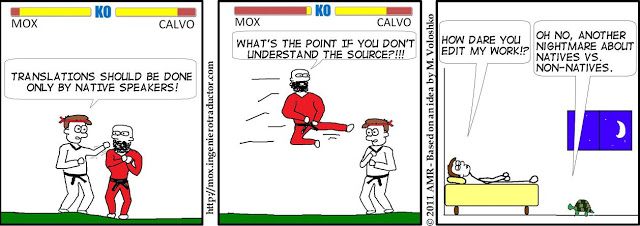2021–2023 edition released
A comprehensive bibliography of translation & interpreting directionality

A comprehensive bibliography of translation & interpreting directionality

In the research I am carrying out for my PhD at the University of Graz, I am looking at how translators adopt the perspective of the audience they are translating for and why some translators seem to be better at doing this than others. This adds to our knowledge of what is going on in the minds of translators and how it shapes their translation work.
Another topic I enjoy contributing to is the status of translators and interpreters’ languages as native/non-native. The effects this has on the production, reception, and perception of translations/interpretations (and of translators/interpreters) fascinate me.
Recently, I have become excited about statistics, quantitative methods and transparent, open research practices. In this regard, we have much to catch up on and need to improve our discipline’s standards considerably. Luckily for us, other disciplines are struggling, too (cf. psychology’s replication/reproducibility/credibility crisis), and we can learn a lot from the many initiatives they are undertaking to address our common problems.
As co-founder, administrator and active member of the Young Translation Studies Scholars Facebook group and heavy Bluesky user, I love finding and sharing new information and resources that are helpful to (early career) researchers all around the globe.
I am also a practicing senior technical writer and language expert (translation/localization/terminology) in the field of security and communication.
MA in translation, 2008
University of Vienna